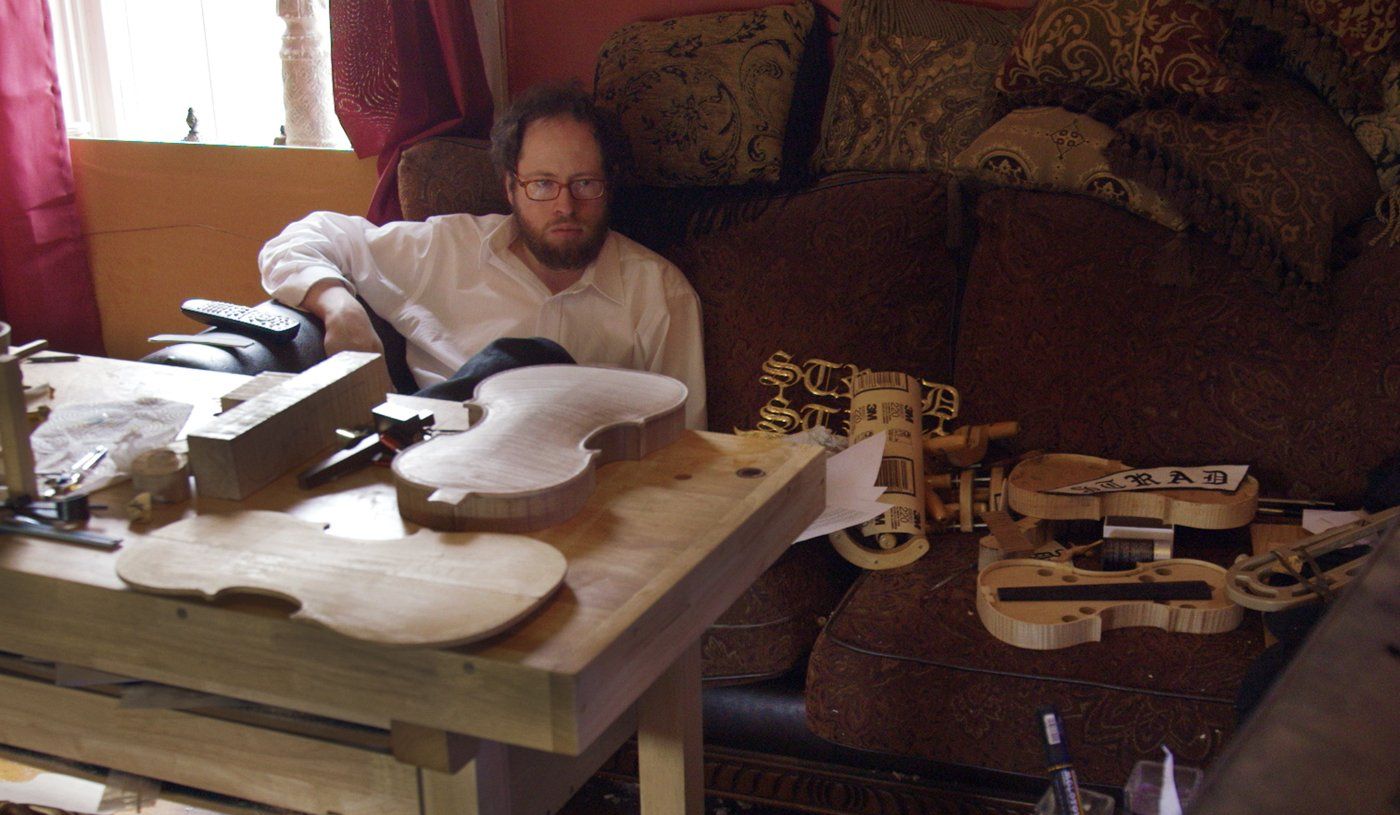In a broad sense, people are strange creatures, each of us with our own unique quirks and kinks that make us individual, even as we are subject and victim to the ties that bind us as a singular human race. But perhaps it is our individual uniqueness that should be celebrated, which is what I always end up feeling when I walk away from a human interest documentary like Strad Style. What you have here is the story of a truly unique individual looking to achieve something fantastic, and as a celebration of this individual, Strad Style delivers exactly what you’re looking for.
Daniel Houck is a loner in rural Ohio, living in an isolated house that he can’t afford to heat and dumping whatever funds he does get into his passion: violin making. Through Facebook he becomes acquainted with Razvan Stoica, a famous violin soloist who would love nothing more than to play on a Stradivarius violin. Houck thinks himself up to the task of crafting a replica, so with only his modest toolset and the determination to get it right, he sets out to make a master-class instrument.
Read more: The Founder mistakes being directionless for moral complexity
Now, Houck is obviously not someone whom you would think of when picturing a world-class violin craftsman. His house is littered with clutter, he can’t afford to keep it heated in winter, and he lights candles in the belief that their magic assists him in his craft. He also speaks frequently of his isolation and dreams of collaborating with other violin makers, though the United States isn’t exactly the prime location to pursue that craft. But looking at him, it’s easy to wonder whether or not he actually knows what he’s talking about; he could just as easily be a crackpot enthusiast who sounds literate in his craft as he could be a legitimately good violin maker. That tension of whether or not Houck will succeed is what keeps the tension up in Strad Style, even if it probably isn’t paced as well as it ought to be to keep the action going.
I only wish there were more to it than an exploration of Houck’s quest for achievement. There’s a lot of allusion to the culture of rural America in contrast to classical music culture, as are there multiple times where Houck mentions his lack of accomplishments as a 33-year-old and the depression that comes with his environment. Either of these could have been a thematic throughline worth exploring, but documentarian Stefan Avalos seems content to just be a fly on Houck’s wall, only minimally prodding to get any sort of response other than what Houck gives freely. It’s also worth noting that Avalos interjects some informational asides early in the film that could have stood to be a little more visually dynamic, and one cutaway features an animated mouse that, while amusing, is completely unnecessary and tonally jarring.
Overall, Strad Style is a serviceable look at the life of one completely unique individual, and considering that that is the extent of the film’s ambitions, it’s hard not to consider it a success. The hints of something deeper might make the film a little disappointing if you look for that sort of thing in your human interest stories. But maybe this human being is deep enough to justify not looking deeper.













